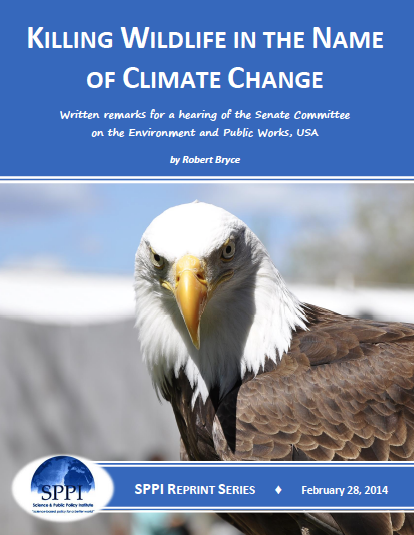News / Random
Killing Wildlife In The Name Of Climate Change

Good afternoon.
The focus of this hearing is on the economic benefits of ecosystems and wildlife and how they “are valuable to a wide range of industries,” including tourism. The purpose is also to examine “how the Administration is preparing to protect” ecosystems “in a changing climate.”
The facts show that federally subsidized efforts that are being undertaken to, in theory, address climate change, are damaging America’s wildlife. Furthermore, those same efforts have, for years, been allowing an entire industry to avoid federal prosecution under some of America’s oldest wildlife laws.
My discussion will focus largely on the wind-energy sector, an industry that has been getting federal subsidies since 1992, and the impact that the wind-energy business is having on wildlife.i
There are two key questions that must be addressed:
Are all energy providers getting equal treatment under the law when it comes to wildlife
protection? The answer to that question is no.
Is widespread deployment of wind turbines an effective climate-change strategy? The
answer, again, is no.
Energy companies are not being treated equally when it comes to enforcement of federal wildlife laws.
I have been writing about the Migratory Bird Treaty Act and the Bald and Golden Eagle Protection Act since the late 1980s.ii
In the late 1980s and early 1990s, the US Fish and Wildlife Service brought hundreds of enforcement cases against the oil and gas industry in Texas, Oklahoma, and New Mexico, for violations of those laws. And rightly so.
At that time, the Fish and Wildlife Service estimated that about 600,000 birds per year were being killed after coming in contact with illegal or improperly maintained pits in the oil fields.iii In 2009, I resumed writing about the enforcement of the Migratory Bird Treaty Act, (enacted in 1918)iv and Bald and Golden Eagle Protection Act (enacted in 1940)v after groups like the American Bird Conservancy began calling attention to the threat that wind turbines were posing to birds and bats.vi
